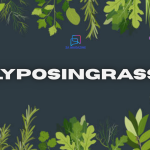When I first started university, I thought setting academic goals was going to be straightforward. I had always been the kind of student who scribbled down ambitious plans-get top grades, finish every assignment early, and balance social life like a pro. But reality hit me differently. Suddenly, deadlines clashed with part-time work shifts, group projects didn’t go as planned, and I found myself struggling to keep up with even the most basic tasks. That’s when I realised I might need some external support, and exploring assignment help services gave me the guidance I needed to organise my workload and set achievable goals without feeling completely overwhelmed.
Lesson 1: Deadlines Aren’t Just Dates – They’re Commitments
In my first semester, I had this bad habit of writing down assignment deadlines but not planning how to approach them. I would tell myself, “I’ll do it next week,” only to realise a 3,000-word essay was due in two days. Panic, late-night coffee runs, and rushed paragraphs became my routine.
Eventually, I realised that deadlines weren’t just there to haunt me-they were markers of commitment. Once I started breaking them into mini-deadlines (research this week, outline next week, draft the following week), the pressure eased. It was less about sprinting to the finish line and more about pacing myself.
One thing that really helped me was using a digital calendar. I colour-coded subjects and added reminders two weeks before each due date. This way, I could track progress without being caught off guard. Small change, big difference.
Feed your curiosity—explore more fascinating reads.
Lesson 2: Balancing Academics and Personal Life is a Real Struggle
No one really prepares you for how tough it is to juggle academic responsibilities with personal life. For me, it wasn’t just about studying-it was about earning money from a part-time job, making time for friends, and staying sane in the middle of it all.
At one point, I remember skipping social events because I felt guilty about not working on assignments. Then, in another phase, I did the opposite: I went out too often and ended up pulling all-nighters to meet deadlines. Both extremes made me miserable.
What worked for me was accepting that balance doesn’t mean giving equal time to everything-it means prioritising according to what’s important at the moment. During exam weeks, studying naturally takes priority. During breaks, personal life can have more space. I stopped trying to be “perfect” in every area and instead focused on being consistent.
Lesson 3: Facing Difficult Subjects Without Burning Out
There are always those subjects that feel like climbing a mountain with no oxygen. For me, it was statistics. No matter how much I tried, the formulas and probability concepts just didn’t click. I spent hours staring at the textbook and felt like giving up.
The turning point came when I changed my approach. Instead of forcing myself to study in long, painful stretches, I broke sessions into smaller chunks and paired them with active recall techniques. I also joined a study group where I wasn’t afraid to ask “stupid” questions. Surprisingly, those discussions helped me understand concepts faster than any solo study session.
I also realised that it’s okay to admit when you need help. There’s no shame in reaching out for academic support, whether that’s from peers, professors, or assignment help services. Sometimes, a fresh perspective is exactly what you need to get unstuck.
Lesson 4: Stress Management is Just as Important as Studying
If I could go back to my first year, I’d tell myself that mental health matters as much as grades. I used to equate productivity with self-worth, thinking I had to study for hours nonstop to feel “successful.” But all that did was burn me out.
The wake-up call came during midterms when I felt so overwhelmed that I couldn’t focus at all. That’s when I started experimenting with stress management. Simple practices like taking short walks, journaling my thoughts, or listening to calming music made studying less of a burden.
I also began rewarding myself for small wins-finishing a draft meant I could treat myself to a movie or a night out with friends. These little rewards gave me motivation to keep going without exhausting myself.
Lesson 5: Discovering the Right Kind of Academic Support)
One of the biggest lessons I’ve learned is that no one has to go through academic struggles alone. I remember being completely stuck on an essay outline, feeling like I was going in circles. That’s when I decided to explore assignment help services online.
To my surprise, it wasn’t about someone else doing my work-it was about guidance. I used online assignment help to understand structure, find reliable sources, and learn how to improve my writing flow. This kind of academic support felt like having an invisible mentor. Whether it was essay support or simple discretion guidance, it gave me clarity when I needed it most.
Looking back, I wish I had been open to seeking help earlier. Sometimes we think asking for support means we’re not capable, but in reality, it makes us more resourceful.
Conclusion
If there’s one thing my academic journey has taught me, it’s this: setting realistic goals isn’t about lowering your standards-it’s about building a system that works for you. Break deadlines into steps, balance academics with life, seek help when needed, and most importantly, don’t forget to take care of yourself along the way.
To anyone reading this, don’t wait until you’re overwhelmed to find solutions. Explore resources, try new strategies, and don’t shy away from asking for academic support when necessary. I can genuinely say that services like Assignment In Need (assignnmentinneed.com) gave me the push I required at tough times, and having that kind of backup can make all the difference.
At the end of the day, your goals should motivate you, not crush you. Set them wisely, and the journey becomes far more manageable.
Feed your curiosity—explore more fascinating reads at 2A Magazine today.







